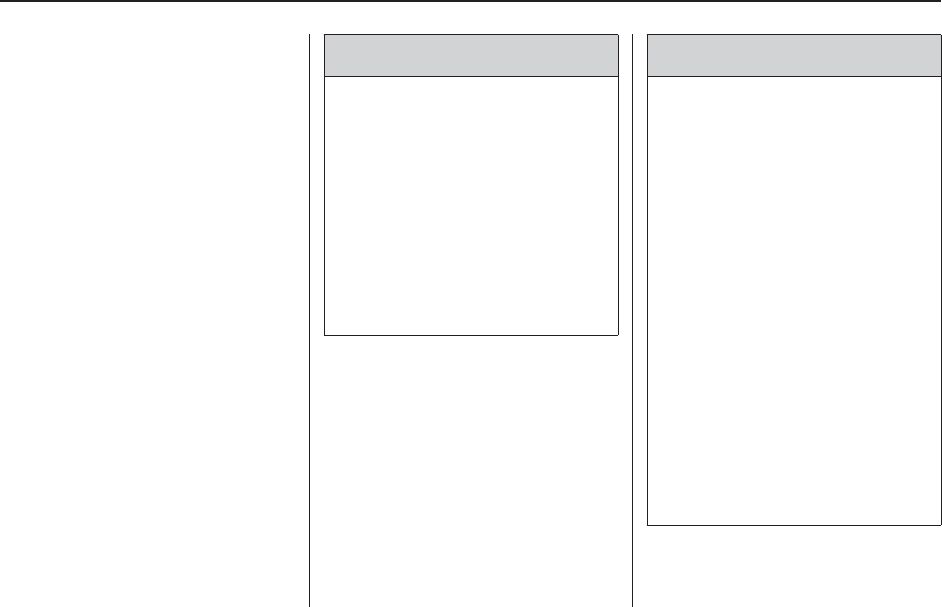
The label shows the gross
weight capacity of your vehicle.
This is called the Gross
Vehicle Weight Rating (GVWR).
The GVWR includes the
weight of the vehicle, all
occupants, fuel, cargo, and
trailer tongue weight, if
the vehicle is pulling a trailer.
The Certification/Tire label also
tells you the maximum weights
for the front and rear axles, called
the Gross Axle Weight Rating
(GAWR). To find out the actual
loads on your front and rear
axles, you need to go to a weigh
station and weigh your vehicle.
Your dealer/retailer can help you
with this. Be sure to spread out
your load equally on both sides of
the centerline.
Never exceed the GVWR for
your vehicle or the GAWR
for either the front or rear axle.
{ CAUTION
Do not load the vehicle any
heavier than the Gross Vehicle
Weight Rating (GVWR), or
either the maximum front or
rear Gross Axle Weight Rating
(GAWR). If you do, parts on
the vehicle can break, and it
can change the way your
vehicle handles. These could
cause you to lose control and
crash. Also, overloading can
shorten the life of the vehicle.
Notice
: Overloading your
vehicle may cause damage.
Repairs would not be covered
by your warranty. Do not
overload your vehicle.
If you put things inside your
vehicle — like suitcases, tools,
packages, or anything else, they
will go as fast as the vehicle
goes. If you have to stop or turn
quickly, or if there is a crash,
they will keep going.
{ CAUTION
Things you put inside your
vehicle can strike and injure
people in a sudden stop or
turn, or in a crash.
• Put things in the cargo
area of your vehicle. Try to
spread the weight evenly.
• Never stack heavier
things, like suitcases,
inside the vehicle so that
some of them are above
the tops of the seats.
• Do not leave an unsecured
child restraint in your
vehicle.
• When you carry something
inside the vehicle, secure it
whenever you can.
• Do not leave a seat folded
down unless you need to.
Driving Your Vehicle 4-31


















